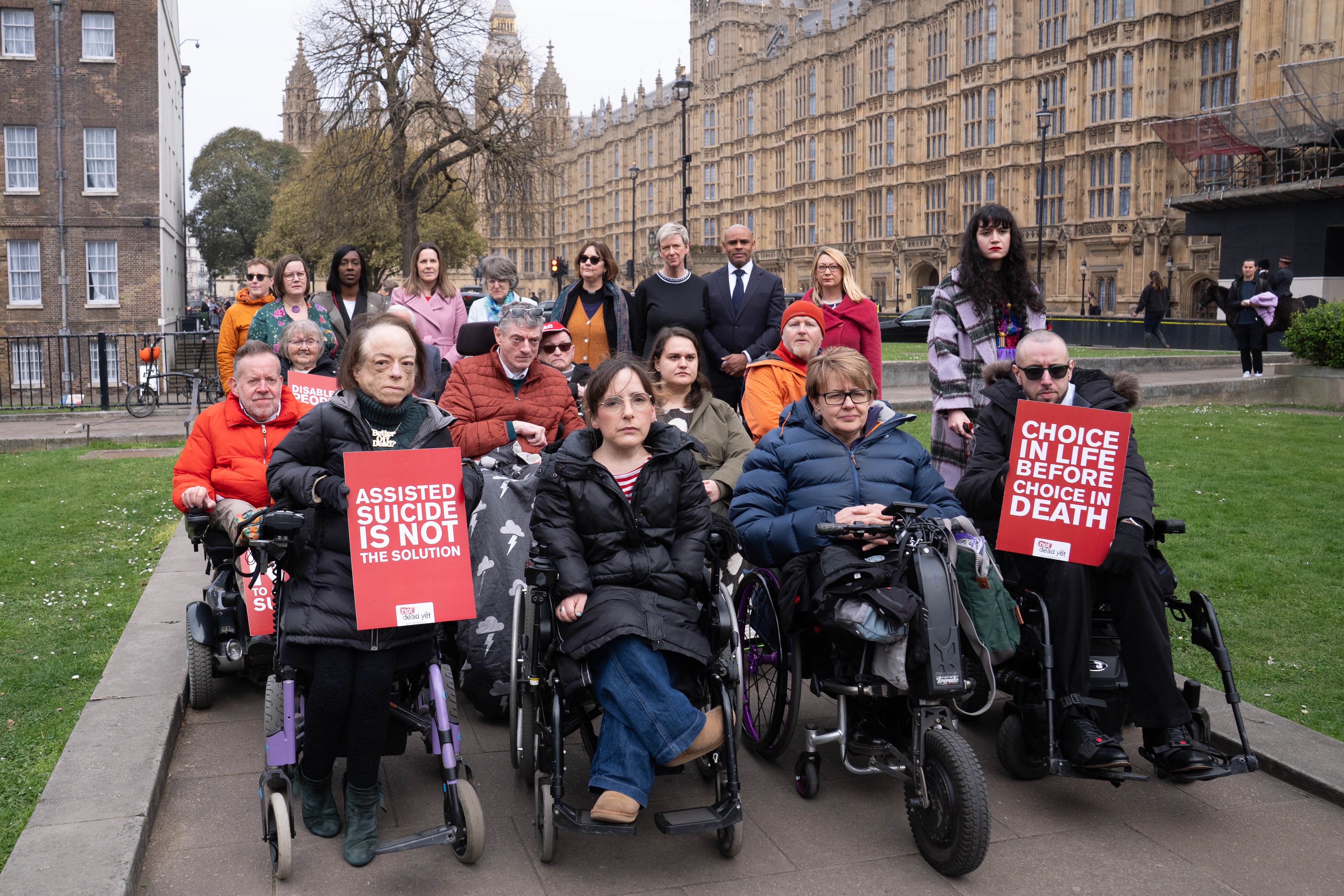Assisted dying bill will put pressure on vulnerable to end lives early, campaigners warn

A campaign group has claimed that the impact assessment produced by the government on assisted dying legislation proves that there will be a financial incentive to end people’s lives early.
The claim by the group Care Not Killing (CNK) came after the government identified at least £59.6m savings a year to be made by allowing assisted deaths. CNK believes the real amount is much bigger because savings in benefits cannot be quantified.
However, the bill’s sponsor Labour MP Kim Leadbeater has warned: “The cost in human terms of failing to act would be immense.”
She said: “It is difficult, if not impossible, to put a price on correcting injustice and providing dignity to our fellow citizens in their final weeks and months, but it is of course right that we look at what effect changing the law would have more widely.”
With the bill set to be debated again in the Commons in just two weeks, her supporters argue that the government assessment has confirmed that assisted dying can be delivered safely, ethically, and compassionately in England and Wales.
But Dr Gordon Macdonald, chief executive of CNK warned that financial incentives could encourage the NHS to push people to choose to end their lives or for people with diseases to feel they are a burden.
He noted that the impact assessment confirms that changing the law will save money, both health care costs of up to £59.6m and a reduction in benefit payments which is unquantified.
He claimed: “In the US State of Oregon, the model for the current bill in Parliament, a majority of those ending their lives cite fear of being a burden on their families, carers or finances as a reason for their decision.
“In Canada, politicians have talked about the considerable savings made to regional health care budgets since introducing euthanasia, with some estimates suggesting up to $500m, regrettably this includes removing funding from a hospice that refused to kill their patients.

“In Holland, not only have the Dutch saved money, but chillingly, they talked about how this policy also increases the availability of organs for transplant, something Dr David Shaw and Professor Alec Morton, two British academics argued for in 2020.”
Dr Macdonald highlighted how the hospice movement has a £150m blackhole in its budget, when up to one in four Brits who would benefit from palliative care but are not currently receiving it.
He said: “Introducing so-called assisted dying would be an incredibly dangerous policy that would put pressure on vulnerable, elderly and disabled people to end their lives prematurely. We need to fix the UK’s broken and patchy palliative care system so everyone can have a dignified death. We need better care not killing.”
However, Humanists UK and My Death, My Decision who support the bill have argued that the impact assessment has dealt with fears about assisted dying.
They noted that overall there are predicted to be cost savings for the state if the law does change – though the sums of at most “tens of millions are negligible in the context of the £180bn annual NHS spend.”
They added: “Regardless, the decision on whether to change the law should not be about economics, but on whether assisted dying is the right approach in principle.”
Andrew Copson, chief executive of Humanists UK, said: “Assisted dying isn’t untested. Legislation is already working in over 31 jurisdictions across the world, where implementation in Australia, New Zealand, the US, and Europe has shown it to be safe, compassionate, and practical. It’s time for Parliament to grant people the dignity and autonomy they deserve at the end of life.”
Claire Macdonald, director at My Death, My Decision, added: “These reports confirm what we have long known – that our current laws are failing dying people and that the current status quo is unacceptable. Every day we delay is another day someone is denied the choice to die with dignity, free from prolonged pain and suffering.”




